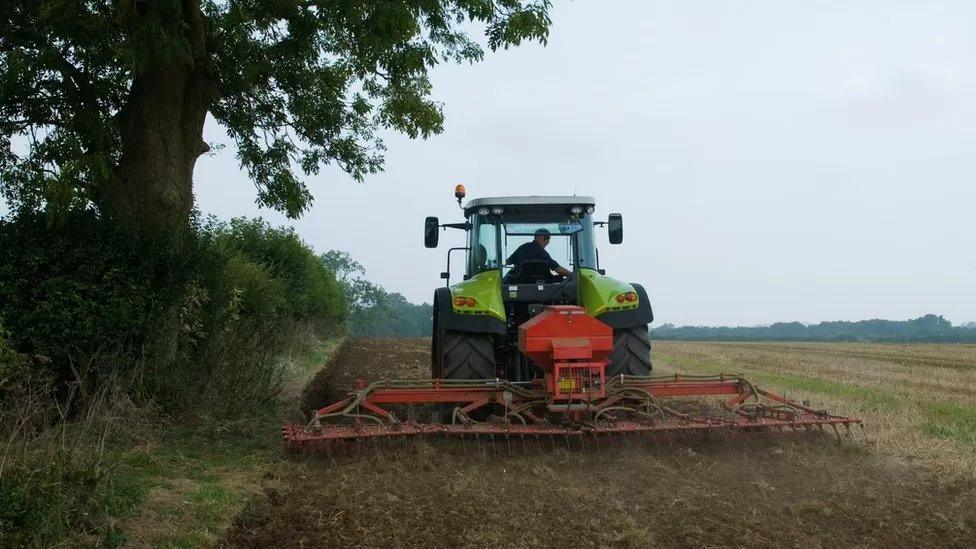Daera investigated by environment watchdog over environmental law
- Published
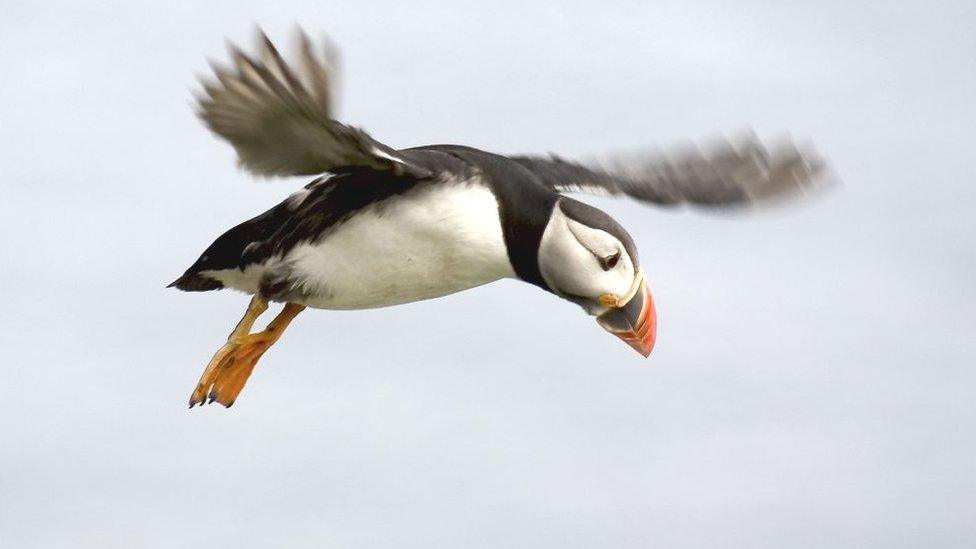
It is in relation to special protection areas for at-risk wild birds, such as puffins
The Department of Agriculture, Environment and Rural Affairs (Daera) is being investigated over possible failures to comply with environmental laws.
It is in relation to special protection areas (SPAs) for at-risk wild birds, such as puffins, whooper swans and light-bellied Brent geese.
It is being led by the Office for Environmental Protection (OEP).
It has previously investigated Daera over other environmental law failures.
These related to ammonia guidance in planning, which led to the guidelines being suspended.
It has also criticised Daera for missing the deadline to publish its first Environmental Improvement Plan.
A spokesperson for Daera said the department would fully co-operate with the investigation.
"Both the minister and the department recognise the important role special protection areas play in helping to protect and maintain wild bird populations and we share concerns about the reported decline in populations," they added.
"The minister plans to bring the Environmental Improvement Plan to the executive imminently."
There are 16 SPAs on land in Northern Ireland, which are important areas for breeding, over-wintering and migrating birds.
They include Rathlin Island, the Antrim Hills, Strangford Lough, and Lough Beg and Lough Neagh which is the largest SPA in Northern Ireland.
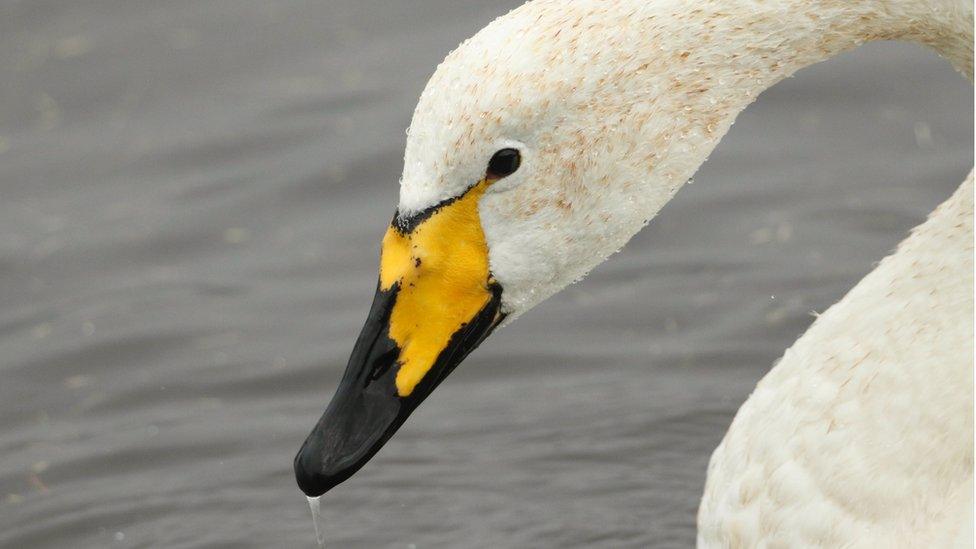
The Whooper Swan or Cygnus cygnus, needs special protection
The OEP is looking into whether recommendations from the Joint Nature Conservation Committee (JNCC) were not implemented and other potential failures in respect of the department's duties to protect and maintain wild bird populations.
Along with other conservation authorities, the JNCC carries out reviews of SPAs then makes recommendations on the creation of new SPAs and adaptation of existing ones in order to protect and maintain certain wild bird populations.
Some wild birds are among almost 600 bird, animal, insect and plant species on the conservation red list in Northern Ireland, meaning there is concern about their populations which are in decline.
This investigation is one of three launched simultaneously in Northern Ireland, England and Scotland, the first time co-ordinated action has taken place.
Other action is being taken in Wales.
'Protect and maintain wild bird populations'
The chief executive of the OEP said it showed concerns about SPAs were "a UK-wide issue" which required attention.
"SPAs play a key role nationally and internationally in protecting populations of wild birds that are currently in regrettable decline," said Natalie Prosser.
"We do not know yet what our investigations will find. However, the implementation of reviews like these are important so SPAs can work to protect and maintain wild bird populations the way they are supposed to.
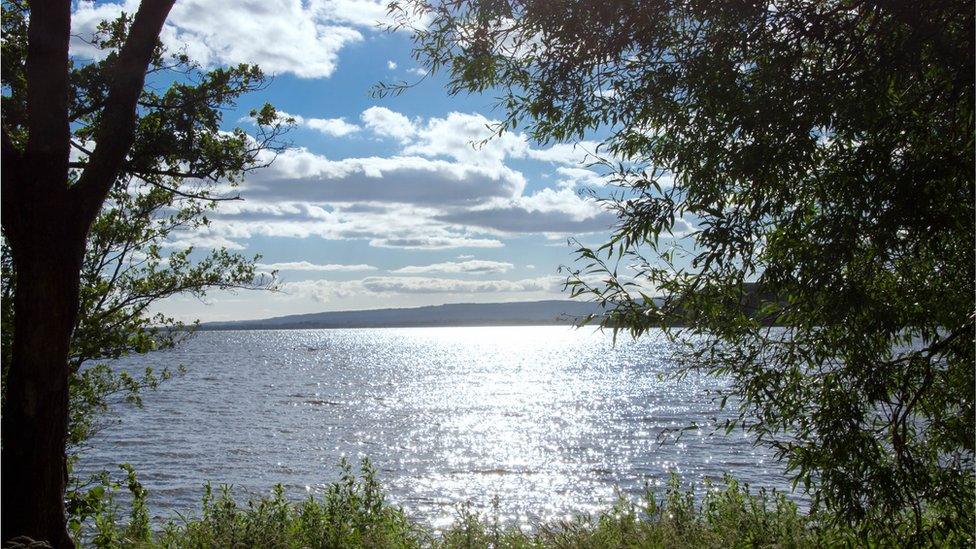
Lough Neagh which is the largest Special Protection Area in Northern Ireland.
"We also believe SPAs will play an important part in Northern Ireland's Environmental Improvement Plan (EIP), when it is published, as they will likely support the achievement of goals relating to protected sites, as well as protecting, restoring, and managing natural ecosystems.
"SPAs in Northern Ireland will also factor in meeting the UK Government's international commitment to protect 30% of land and ocean for nature's recovery by 2030.
"[This is] a commitment that Daera has endorsed themselves."
If an investigation finds a failure to comply with environmental law, the OEP has enforcement powers ranging from co-operation, dialogue and agreement with public departments and authorities to commencing court proceedings.
RSPB support
RSPB (NI) has welcomed the investigation.
"We are a bit behind in our reporting on SPAs, so we are very supportive of this," said John Martin from the conservation group.
"There is a clear sign there that these areas, these SPAs which are really important for protecting these birds, they aren't actually delivering for those species' protection.
"So it's very disappointing considering we've been talking to the department about these issues for a long time and it's about time they are remedied."
- Published14 February 2024
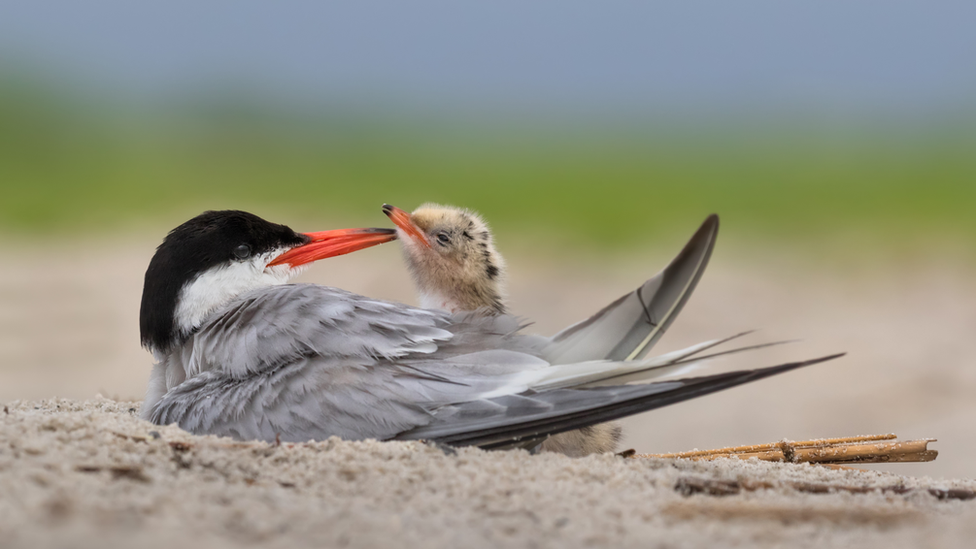
- Published19 December 2023
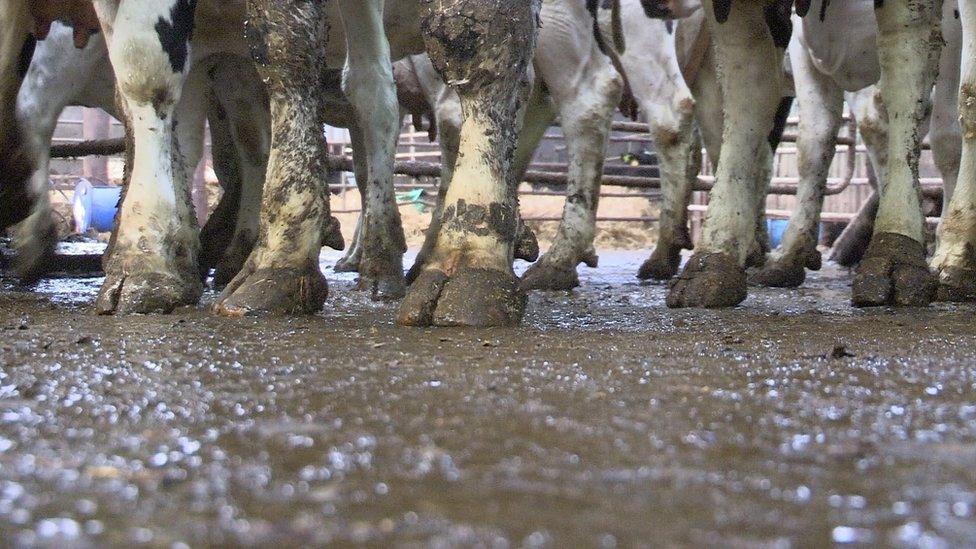
- Published27 July 2023
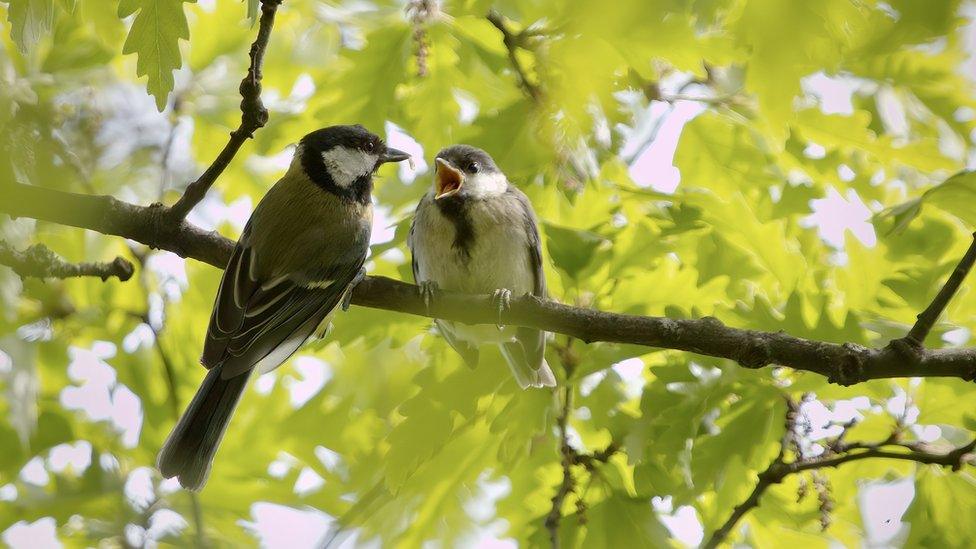
- Published23 May 2023
